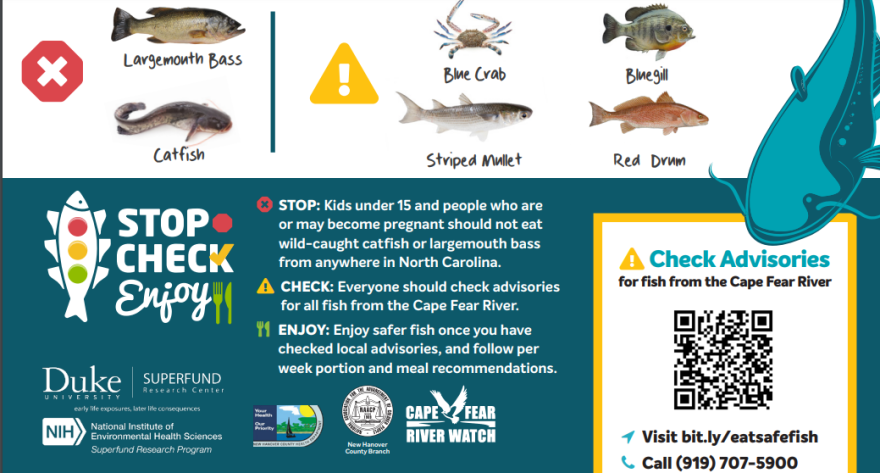If you live in the Cape Fear region, you probably know that the Lower Cape Fear River is polluted. “Impaired” is the term environmental officials like to use. You might also know that part of the pollution problem is courtesy of Chemours, formerly DuPont, releasing a multi-decadal load of unregulated, toxic chemical compounds into the river – including the carcinogenic GenX. Many of these chemicals cannot be removed through traditional water treatment methods.
Because the Cape Fear River is an important source of drinking water for thousands of people in southeastern North Carolina, Brunswick County has begun work on a reverse osmosis water treatment plant. Cape Fear Public Utility Authority is constructing granular activated carbon filters to remove more of these emerging contaminants. CFPUA filed a lawsuit against Chemours and Dupont in 2017. According to the New Hanover County water utility, the expected trial date is not until the summer of 2023.
But Chemours / DuPont is not the only polluter. And contaminated drinking water is not the only serious impact.
People have fished the Lower Cape Fear River for decades, and according to a new study out of Duke University, that fishing is often not just sport. Duke researchers found that people who catch fish from the Cape Fear River often consume the fish and share it with others.

Scientists have also discovered that some of these fish are more contaminated than previously thought, and fish consumption advisories have been dangerously outdated. The potential impacts for humans from over-consumption of these fish include neurological damage and cancer.

On this episode of CoastLine, we’ll learn about the Duke University study, what it means for you, and how you can make healthier fish choices and prepare your fish to minimize the contaminant load.

Guests:
Dr. Mozhgon Rajaee, PhD, Assistant Professor, Public Health, Oakland University
Chiara Klein, Program Coordinator for Community Engagement, Duke University Superfund Research Center
Dean Neff, Chef and Owner, Seabird Restaurant, Wilmington, NC
Go Fish Fest! Eating Safer from the Lower Cape Fear River at New Hanover County Arboretum
- When: March 27, 2022 from 1pm – 4pm
- Where: New Hanover County Arboretum, 6202 Oleander Dr., Wilmington, NC 28403
- What: Check out our event program!
Come enjoy a family-friendly day of music, games, speakers, good food, cooking demonstrations, and learn how to make safer choices when eating fish from the Cape Fear River!
Resources:
Stop, Check, Enjoy information:
https://sites.nicholas.duke.edu/superfundcec/fish/
https://sites.nicholas.duke.edu/superfundcec/fish/stop-check-enjoy-campaign-materials/
Current Fish Consumption Advisories for North Carolina:



